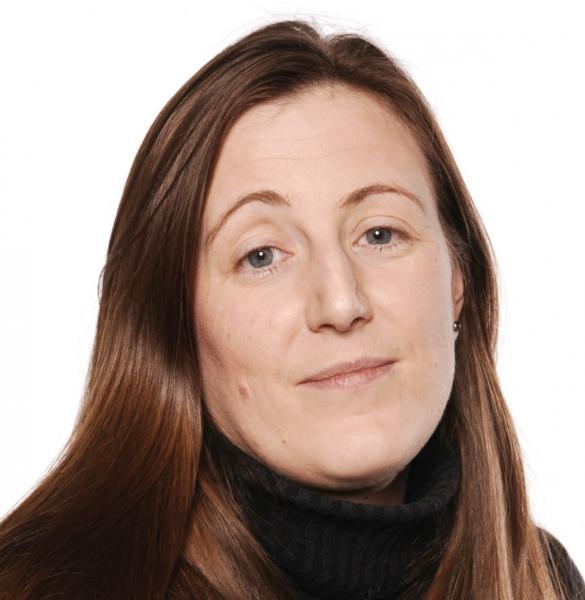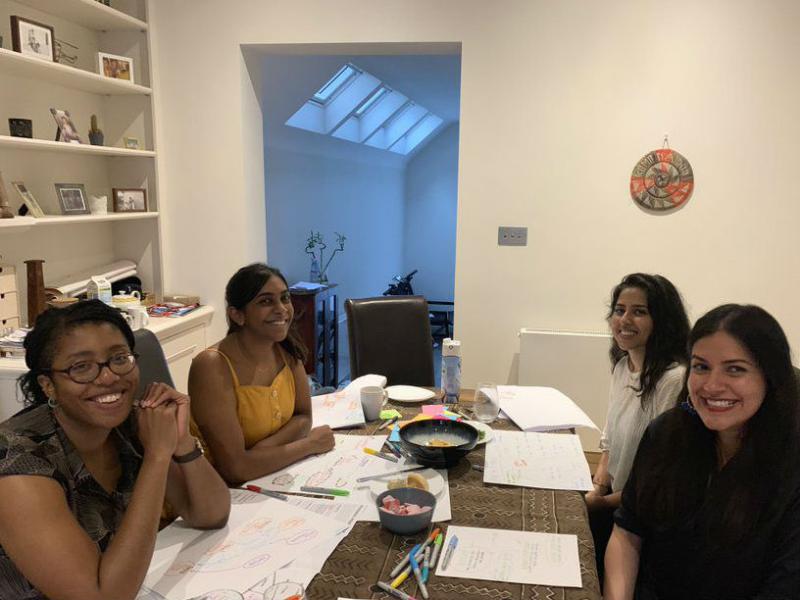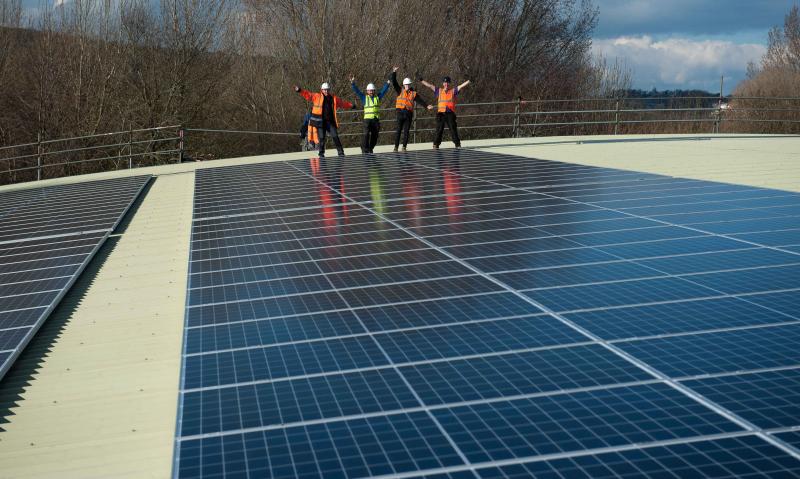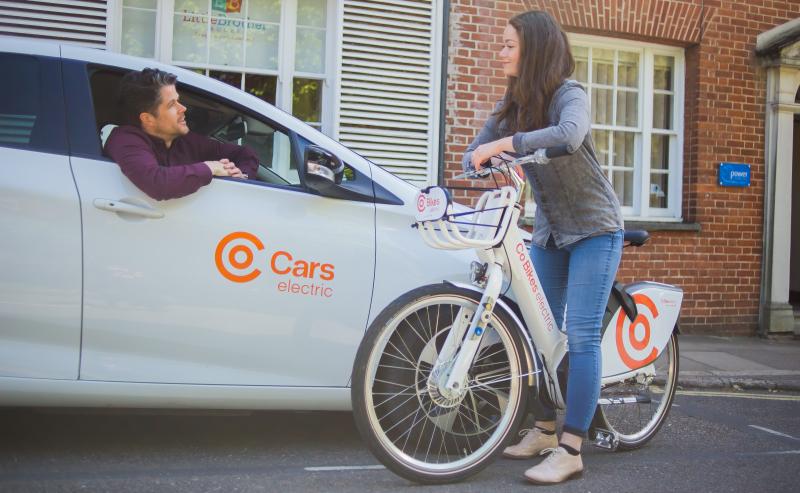Joanna Watson23 Aug 2021
Homemaker. Colleague. Partner. Mother, sister, friend. Women have many identities which we inhabit without thinking about them. But we don’t tend to define ourselves as investors. Rachel Mountain and I reflected about why this is and why the OwnIt project has made some big strides in helping women do good things with their money.
Rachel is Head of Marketing and Communications for Ethex and Energise Africa, two digital platforms that ‘help everyday people make ethical investments that fund extraordinary organisations both in the UK and overseas’. They recently gave us a grant of £6000 to help fund the bridging phase of OwnIt and I was interested to find out why.
So why support OwnIt?
As Rachel explains "both Energise Africa and Ethex are proud of the fact that over 36% of our investors are women…but we really want that to be 50% over the next 2 – 3 years".
Compared to the industry average which is 25% they're doing quite well but they know that they could do so much better - and the industry could do so much better.
“That’s why we’re really supportive of what OwnIt is trying to do. Women are really motivated by climate change and the SDGs (UN Sustainable Development Goals) but typically less financially aware than men. We think that needs to change and OwnIt has a fantastic role in helping women understand the choices they have for greening their finances, especially in the face of the dire warnings issued in the recent IPCC report.
OwnIt is in a unique position where it can rapidly create a movement of women across the UK who understand the choices they have when it comes to their finances and protecting the planet.
"It’s about time that we have an initiative that can demystify and engage people in the finance sector in a really positive way. That’s got to be a great thing and even the UK Government has seen the potential as we’ve been asked to run a workshop at COP26 (the climate change negotiations) in Glasgow in November”.
How did Ethex get involved in OwnIt?
Rachel was there at the beginning of OwnIt. She came to a workshop hosted by Friends of the Earth’s Experiments Team where we explored how people could do good with their money and what barriers they face. The thing that emerged most powerfully was that many women don’t tend to think of themselves as investors – and can be more risk averse because they feel they don’t have the experience to start investing or they just don’t know where to start because the financial sector is full of so much complex and confusing jargon it's enough to put most people off.
However, research shows that when they do invest women are more likely than men to align their investments with their values. Money talks and where people put their money – and especially when they move it, they can send an important signal to the big financial institutions of the need for change over time.
Rachel believes passionately that “we need to create a movement of people using their money positively or we won’t get the rapid and transformational change that we critically need to limit global warming to 1.5 degrees Celsius. If enough people start choosing green financial products that are innovative and transparent and which support the sustainable business models of the future then the big institutions have to sit up and listen. There has been a lot of ‘green window dressing’ which has caused even more confusion for people. You’ve only got to look at pension funds as an example of this where it’s really difficult to get a clear idea of which companies your money is being invested in.”
To help build that movement, Ethex and Energise Africa became our first founding partners with an initial grant to support the transition from a series of pilots developed by Friends of the Earth and Enrol Yourself to a venture now led by Enrol Yourself which has the potential to rapidly scale across the UK.
Why do you think OwnIt is working?
Even though millennials are more digi-savvy and Fintech is making investing more accessible, Rachel recognises that OwnIt is a great way to get like-minded women to share knowledge and experiences and feel more comfortable in talking about money in a safe place – whether in private social space or in the workplace, supported by employers.
“Talking about money can be quite a daunting thing for people as everyone’s circumstances are different. There are also lots of scams and things to be wary of so it’s very difficult to know where to start. OwnIt is great because it provides a very safe and non-pressurised environment for people to come together to just learn more about money and the choices people have to green their finances. It’s about empowering people so they can answer questions such as:
- How environmentally friendly is my high street bank and why should I care if I have my current or savings account with them?
- How do I engage with my pension provider to find out what I’m actually invested in?
- How do I find out how green are my current financial products?
- What reputable publications can I read to find out more about ethical financial products?
Have they done anything differently because of OwnIt?
OwnIt and their own research have really made Ethex and Energise Africa focus on how they communicate in a much more straightforward and clear way. They’ve recently updated Ethex’s brand and have clear and de-jargonised communication with easy-to-understand guidelines. Well signposted information has been front and centre of their new brand design and how they communicate.
The Climate COP is taking place in December
I asked Rachel about her hopes and fears for the outcomes and how might decision-making about personal finance send a signal in this critical year?
“OwnIt, Friends of the Earth and Ethex are running a workshop at COP26 which we’re really excited about. It will be a chance for us to engage with the public at the climate change negotiations about greening your finances and why it’s so important.
But from a macro perspective I really hope that governments don’t go for the big and often hollow soundbites from large corporates but instead look at the findings of the IPCC report and really start to prioritise what’s needed. For me that’s about finance, finance and finance. The financial institutions have had a decade to deliver the kind of capital that’s needed to protect the planet but when you look at Banktrack’s research the leading banks are still funnelling $trillions into high carbon projects and have fundamentally failed to innovate as a sector”.
With the rise of Fintech there are new opportunities and ways of getting finance to flow to the countries and sectors where it can best support action on climate change.
“I’d love to see countries coming together to agree significant cuts to carbon emissions to keep to 1.5 degrees of warming but also that the finance is mobilised to deliver on this that puts retail investors, communities, sustainability, transparency and innovation right at the centre if we want to deliver a low carbon world that works for everyone.”
Where could OwnIt go?
Rachel acknowledges that behaviour change is critical and is an important part of delivering on the climate change agenda. OwnIt is already showing results in terms of driving behavioural change across the finance sector.
The money that has already been moved through OwnIt is phenomenal. It’s just such a brilliant idea – a fab solution that feels really tangible.
" Judging from the success of its initial pilots and if it can be scaled up with the right resourcing, it definitely has the potential to deliver real and lasting behavioural change across the finance sector. Empowering people with knowledge so they can determine how best to align their money with their environmental values has the potential to make a real difference.”
Tell me how Ethex and Energise Africa use finance to make a difference?
Both Ethex and Energise Africa enable people to have a positive impact by promoting investment in sustainable organisations located in the UK, sub-Saharan Africa and other emerging economies. Many of the UK based organisations are community-owned or profit-for-purpose businesses where the investments come from individuals and the value generated by these businesses directly benefit the communities they serve. For example, profits from a renewable community energy project could be ploughed back into other low carbon initiatives so that communities can build resilience and empowerment.
Or in the case of profit-for-purpose businesses, solar companies operating in Africa are able to provide low-income families with monthly payment plans so they can access affordable and life-changing solar electricity.
Why is this approach different from other models?
Rachel explains that their platforms provide a more democratic way of investing, which is easily accessible (people can start investing from £50) and transparent. They enable people to invest directly in projects at very low levels so that they can build their confidence as investors and connect directly with a project clearly showing the environmental and social impact that their money is having on the ground.
“Over the past decade we’ve seen that some big financial institutions are good at understanding risk whether that’s carbon, climate or water stress but they’ve monumentally failed to innovate in a way that can drive finance to the sustainable businesses of the future” says Rachel. “It’s also about getting the right kind of patient capital to organisations to support their long-term growth and viability. A lot venture capital money often comes with aggressive short term growth expectations that can put businesses under undue stress which can sometimes be detrimental as shareholders look to maximise their returns”.
Of course, with Energise Africa the situation was slightly different in that banks weren’t willing to lend to solar businesses operating in sub-Saharan Africa. Instead they wanted to lend to build shopping centres or more traditional sectors. Capital wasn’t flowing to the sustainable businesses that needed it from traditional sources and as such was really impeding the uptake of solar energy. Without lending, solar businesses were unable to provide solar systems to households or businesses on a pay-as-you-go basis (monthly payment plans) and this meant that they were financially out of reach of most people. Over the past 4 years, Energise Africa has mobilised more than £24 million in investment which has resulted in 500,000 people accessing life changing solar energy and more than 120,000 tonnes of CO2 mitigated each year. They’re on a mission to expand their focus to other emerging economies and sectors to get capital flowing to sustainable businesses that really need finance to protect the planet and accelerate the SDGs (Sustainable Development Goals) but for whatever reason they can’t access finance from traditional sources.
Note that investors should be aware that their capital is at risk and returns are not guaranteed.
To find out more about Ethex and Energise Africa, please visit Ethex.org.uk and Energiseafrica.com.
Investing on energiseafrica.com and ethex.org.uk involves risk, including the loss of all of your capital, illiquidity (the inability to sell assets quickly or without substantial loss in value), and it should be done only as part of a diversified portfolio.
If you’d like to get involved in the programme or fund the next phase of OwnIt, please contact Enrol Yourself http://enrolyourself.com/ownit. To find out more about Friends of the Earth’s experiments work, get in touch.





